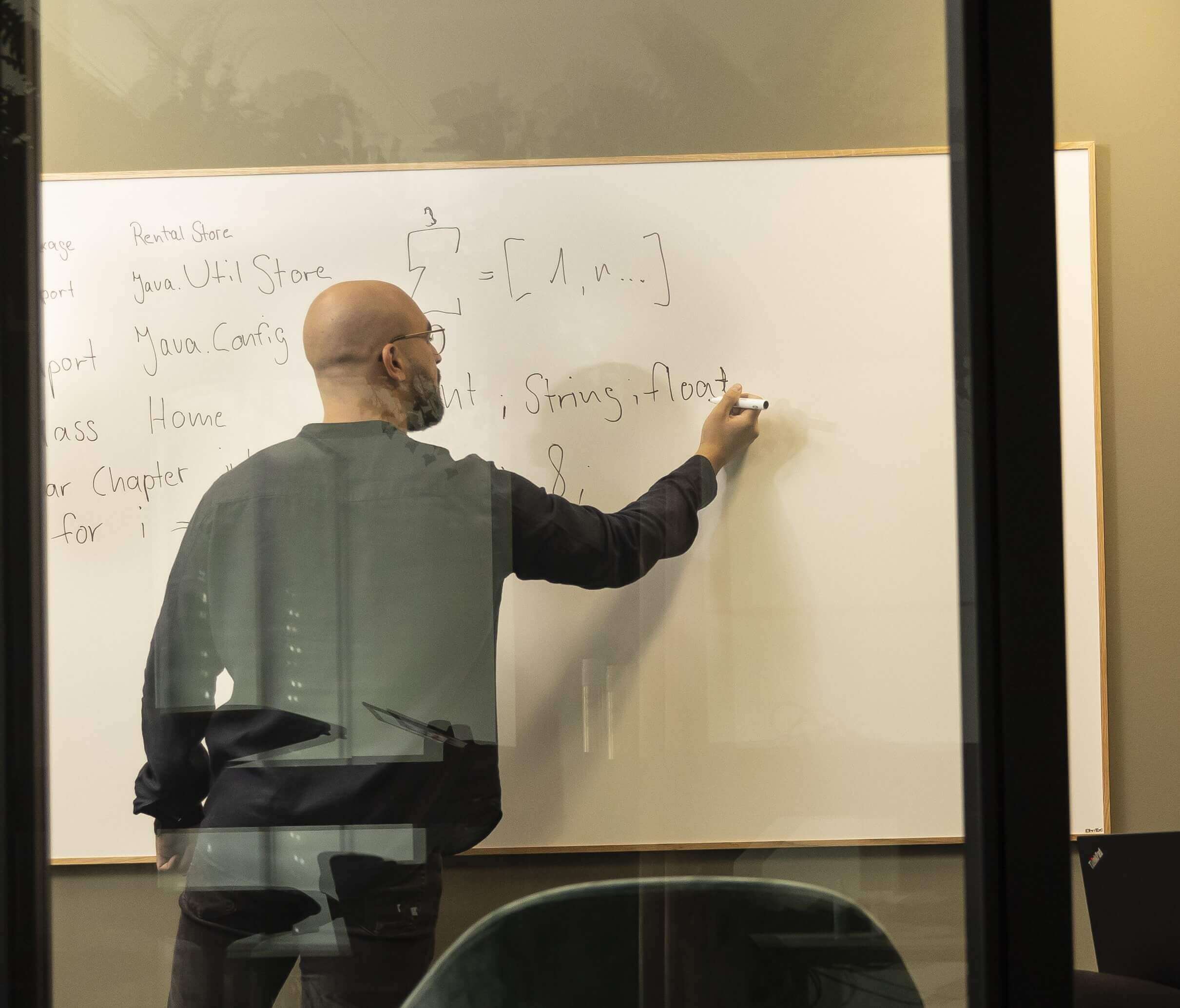- Veröffentlichung:
30.09.2022 - Lesezeit: 5 Minuten
Interview on digitization: “The image is colorful”
Wolfgang Reinhardt, Principal at Ventum Consulting, was interviewed by the trade journal IT Director where he explains why digitization is not just an opportunity for companies, but a sheer necessity.
ITD: Mr. Reinhardt, in the last two years, the Corona pandemic has become the main driver of digital transformation in Germany. How well have companies coped with the crisis since then?
Wolfgang Reinhardt: The image is colorful. Great leaps have been made in providing infrastructure for mobile working, and the benefits will continue. Nevertheless, associated organizational types have not kept pace, for example when it comes to facilitating creative processes or holding hybrid conferences and workshops.
ITD: What is the current status quo when it comes to the level of digitization in German companies? Which areas still deal with great difficulties?
Reinhardt:The German market leaders are also well positioned when it comes to digitalization. The opportunities offered by digitalization are being used across all sectors to achieve competitive advantages. But here, too, it is important to be the decisive step ahead. This can be achieved by making all processes more flexible and faster and by making more in-depth use of data. There is often no getting around artificial intelligence, even if it is not the solution to all problems. The virtualization of development processes on the one hand and customer experiences on the other are also a must in many cases.
ITD: According to a recent Bitkom survey, one in three companies plans to cut back on digitization investments in 2023. How problematic do you think such a change would be?
Reinhardt:You can’t turn a blind eye to major macroeconomic challenges. But neither can we ignore supply chain problems and the shortage of skilled workers. If you act too short-sightedly here, you get out of step. On the other hand, companies improve their ability to make good decisions in critical situations. Technology is an enabler. With the right partnerships and smart buying, budgetary challenges can often be overcome.
ITD: To what extent does digitization also offer opportunities for companies to respond to current challenges (i.e. supply bottlenecks, rising energy costs, shortage of skilled workers) and adapt better?
Reinhardt:In our view, it is not “opportunities” that arise, but sheer necessity. In many cases, high energy costs can (still) only be countered through very detailed data evaluation and powerful prediction, i.e. through calculation models. All serious sociodemographic studies show that the shortage of skilled workers can ultimately only be remedied through automation.
ITD: What contribution can digitization possibly make to solving climate change? - Keyword: "Green IT"?
Reinhardt:Green IT means addressing the IT’s own carbon footprint, the ecological footprint. A major development is underway here. On the one hand, it is simply cost-driven. On the other hand, companies have a responsibility to their customers, employees and the public to act in an environmentally friendly manner. This factor also leads to an increase in efficiency and green IT. But digitalization can do more and will continue to be challenged to save energy.
ITD: Where does IT offer the greatest potential for large companies (i.e. manufacturing industry) to reduce their own environmental footprint?
Reinhardt:Companies in the manufacturing industry and other sectors are already asking themselves not only how long each production step takes and what error rates it produces, but also how much energy it consumes (too much). This needs to be measured, evaluated, controlled and managed. Digitized.
“Digitization is an exciting task and at the same time a challenge for everyone”
ITD: How will our working world change as a result of the digital transformation? To what extent should companies prepare their employees for this change?
Reinhardt:The necessary changes are massive, so they come with just as much pressure. With regard to the shortage of skilled workers, this means that companies want to deploy their employees in those areas where it is particularly imperative. Automation will lead to further virtualization and more abstract activities in the workplace, which is a big step for many. Previous forms of organizations are often unable to cope with this. New forms of collaboration will develop. “Reverse mentoring” is currently a promising approach, with which younger colleagues help older ones to familiarize themselves with new things.
ITD: What do companies need to do now to avoid being left behind in digitization?
Reinhardt:Digitalization is an exciting task and a challenge for everyone at the same time. But no one can be good at everything. Efficient partnerships and a network of innovation-promoting supply and service relationships are the basis for a functioning digitalization ecosystem. It is the companies´ taskt to make good decisions for innovation. This includes the right timing.
ITD: What would you like to see from German policymakers in order to actively support companies in digitization projects and remove hurdles?
Reinhardt:We are well positioned in Germany with the division of tasks between business and politics. Policymakers can provide support by accelerating approval and administrative acts, as well as decluttering standards. In many cases, this cannot be done without digitization. In the process, much has been set in motion, and much still needs to be accelerated.
Author
Wolfgang Reinhardt
former Principal at Ventum Consulting, who is passionate about digitalization, innovation, and social and environmental responsibility.


